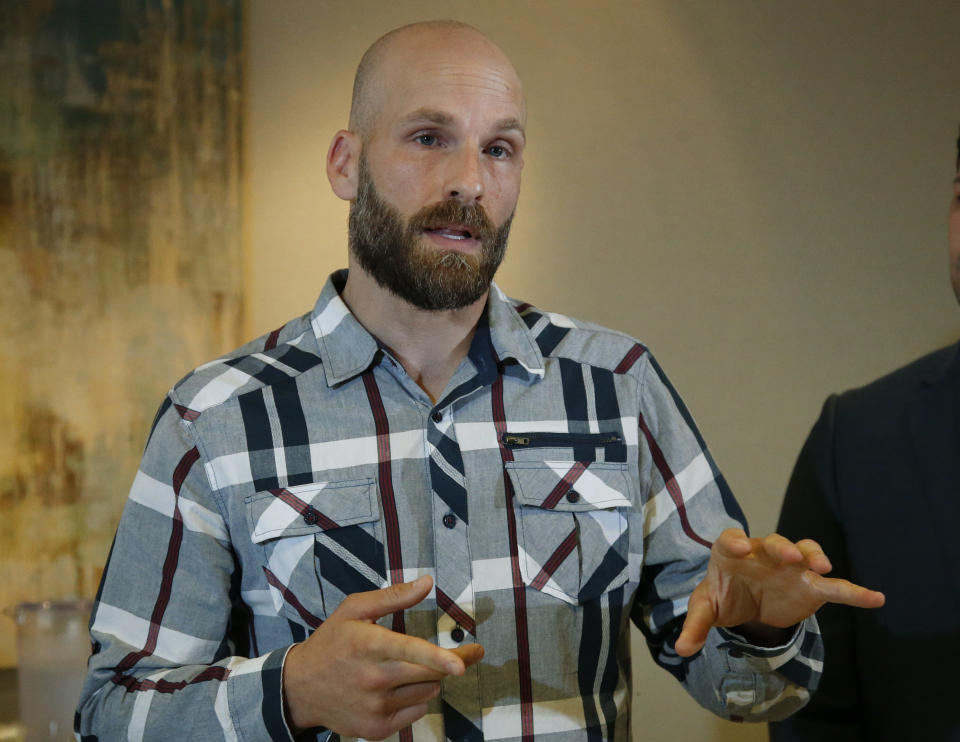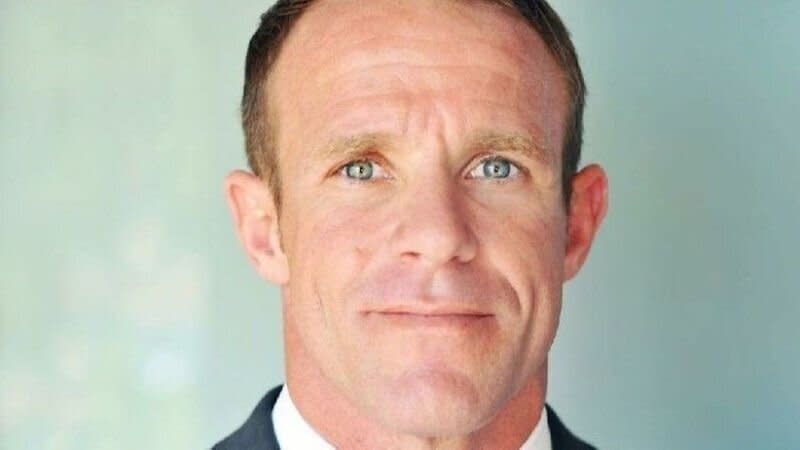Retired commandos critical of Trump’s reported war crimes pardons
TAMPA, Fla. — President Donald Trump’s reported plan to pardon a series of accused and convicted war criminals on Memorial Day is not popular with retired special operations leaders attending a conference here.
“It’s not going to have a good effect on the force,” said a retired senior special operations officer. “People might see it as supporting the troops. It’s not supporting the troops. This will not go well.”
The New York Times reported May 18 that the White House was expediting the paperwork required to pardon individuals involved in a series of high-profile war crimes. Those mentioned include: Special Warfare Operator Chief Edward Gallagher, a Navy SEAL charged with shooting civilians and killing a prisoner; Maj. Mathew Golsteyn, a Special Forces officer accused of murdering an unarmed prisoner; a group of Marines who urinated on a Taliban fighter’s corpse; and Nicholas Slatten, a former sergeant in the Army’s 82nd Airborne Division who was convicted of murder for his part in the killing of 14 Iraqis in Baghdad’s Nisour Square in 2007 while working as a security contractor for Blackwater.

The White House declined to comment on the record about the possibility of those pardons, and Trump has given no recent public indications that he plans to do so.
Earlier this month, however, Trump pardoned Michael Behenna, who served five years in prison after being convicted of murdering a prisoner as a lieutenant in the Army’s 101st Airborne Division. That single pardon drew sharp public criticism from some former military personnel.
Now special operations veterans attending the Special Operations Forces Industry Conference are highly critical of Trump’s reported plan to pardon more convicted and accused war criminals.

“You’re sending a signal out there that we as a country don’t have the appropriate moral values to recognize right and wrong,” said retired Brig. Gen. Howard Yellen, a former deputy commander of U.S. Army Special Operations Command. The pardons would send a message “that you can go out there in the heat of battle, in the fog of war, and be able to commit a law of land warfare crime, and not receive any punitive actions for it, that you can act with impunity,” he said.
If Trump pardons Gallagher on Memorial Day, it will be before the SEAL’s court-martial, which was scheduled to begin on May 28, but was delayed this week by the judge following claims that the Navy prosecutors spied on defense attorneys and a reporter).
The retired senior special operations officer said the notion of pardoning someone accused of war crimes without even allowing the military justice system to play out would be “the most damaging” aspect of what Trump was reported to be planning. “I cannot imagine a case where it would benefit good order and discipline to preemptively pardon someone without letting the process work,” he said. “You will not find anybody who thinks this is a good idea.”
The Navy’s case against Gallagher is reportedly based on accusations from other SEALs in his unit, including numerous subordinates, raising concerns that a preemptive pardon would inhibit junior service members from speaking out in the future. “You’ve got a guy, half of his own platoon came forward … to testify against him,” said the retired senior special operations officer. “If that gets cut off, who’s ever going to speak up again?”
Such fears are overblown, according to retired Army Command Sgt. Maj. Mike Hall, who served as the senior enlisted adviser for all U.S. and coalition forces in Afghanistan from 2009 to 2010. Trump’s reported plans are “unfortunate,” but the armed forces’ culture of adherence to the law means service members are still likely to report serious wrongdoing in the future, said Hall, who also served as the command sergeant of Joint Special Operations Command from 2000 to 2001. “The military has a long history of knowing right and wrong and that culture starts to get embedded in you on day one of basic training or boot camp,” Hall said.
However, Hall said he found the president’s reported plan to issue the pardons “a little bit appalling” because it amounted to a second-guessing of the military justice system, which is “a very fair system,” he said. “It quite frankly leans very heavily toward the rights of the accused.”
Yellen said he was also concerned that the message sent by any pardons would “undercut” the efforts of military leaders at all levels to reinforce standards and the law of armed conflict regarding the treatment of prisoners and civilians on the battlefield. “You’re a soldier, sailor, airman or Marine out there in the field, your chain of command is talking about good order and discipline and in the back of your mind you’re saying, ‘Yeah, but, hey, if something goes wrong I’ll get a pardon for it later on,’” said Yellen, who commanded the 160th Special Operations Aviation Regiment from 1997 to 1999. “I’m concerned that we’re inculcating an ethic that is not in the norms of the United States military and what we put out there on a day-to-day basis.”

But a retired Special Forces colonel who has commanded in combat disagreed that the pardons would encourage U.S. service members to commit future war crimes. “It won’t spread, it won’t contribute to ill discipline,” he said. “Nobody’s going to be able to count on the president pardoning them if they do something wrong.”
The special operations veterans were particularly infuriated at the idea that Trump might choose Memorial Day to announce the pardons. “I can’t think of a more inappropriate day to do it,” Hall said. “It’s a complete misunderstanding of what Memorial Day is about.”
Yellen said he had been asked to give a Memorial Day speech in his hometown of Gallatin, Tenn. “I’m very concerned I’m talking about the honor and the sacrifice of heroes … who went to battle to protect the national and foreign interests of our country, and while I’m talking about these heroes, the president is talking about alleged war criminals,” he said.
Asked whether it would be appropriate for Trump to announce the pardons on Memorial Day, the retired Special Forces colonel who has commanded in combat paused for several seconds before answering. “I don’t think you should do anything on Memorial Day except what Memorial Day is made for,” he said.
_____
Read more from Yahoo News:



